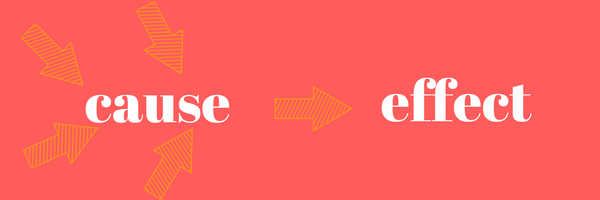As an Engineer I like the cause and effect approach. It is especially useful when trying to conduct root cause analysis exercises; what factors caused the effect we are witnessing? It provides simple questions that can lead to powerful changes that can take place within your business. But, how many of us are putting up with the effects, rather than dealing with the causes?
I recall a client many years ago trying to schedule their way out of their problems. Their order book was lumpy, they delivered late and keeping customers happy was an impossible juggling act. When you stood back you could see that their order intake process was flawed, they didn’t focus on starting their orders on time and their fixation with what was going out of the door that day prevented them from getting out of this mess. By moving their focus from effect to cause they reversed these issues and became a supplier recognised for their excellent delivery performance.
When you take a short break from your day to day busyness you can spot the inputs within your business. By asking yourself what you do with these inputs you can quickly ascertain if you are operating at cause. If your days run away from you, as you continuously fire fight your problems, this might be an indicator that you are working at effect and not cause.
In many cases this might only be a minor change to your focus. Moving from on time delivery to on time project start, for example. Moving from expediting to fixing your capacity planning tools. Moving from arguments and friction to properly documented meetings. I’m sure that you can think of many examples that would fit your own business.
When your business operates from cause the levels of chaos decreases. There will still be the unknown elements that appear in your business that will try to throw you off course, but they will be at a level you can handle. If we continue to operate at effect, however, our chaos levels can be much higher and we will be left with a feeling of being out of control. If you want to change this situation then change your focus to ’cause’ and then watch your ‘effects’ change.
